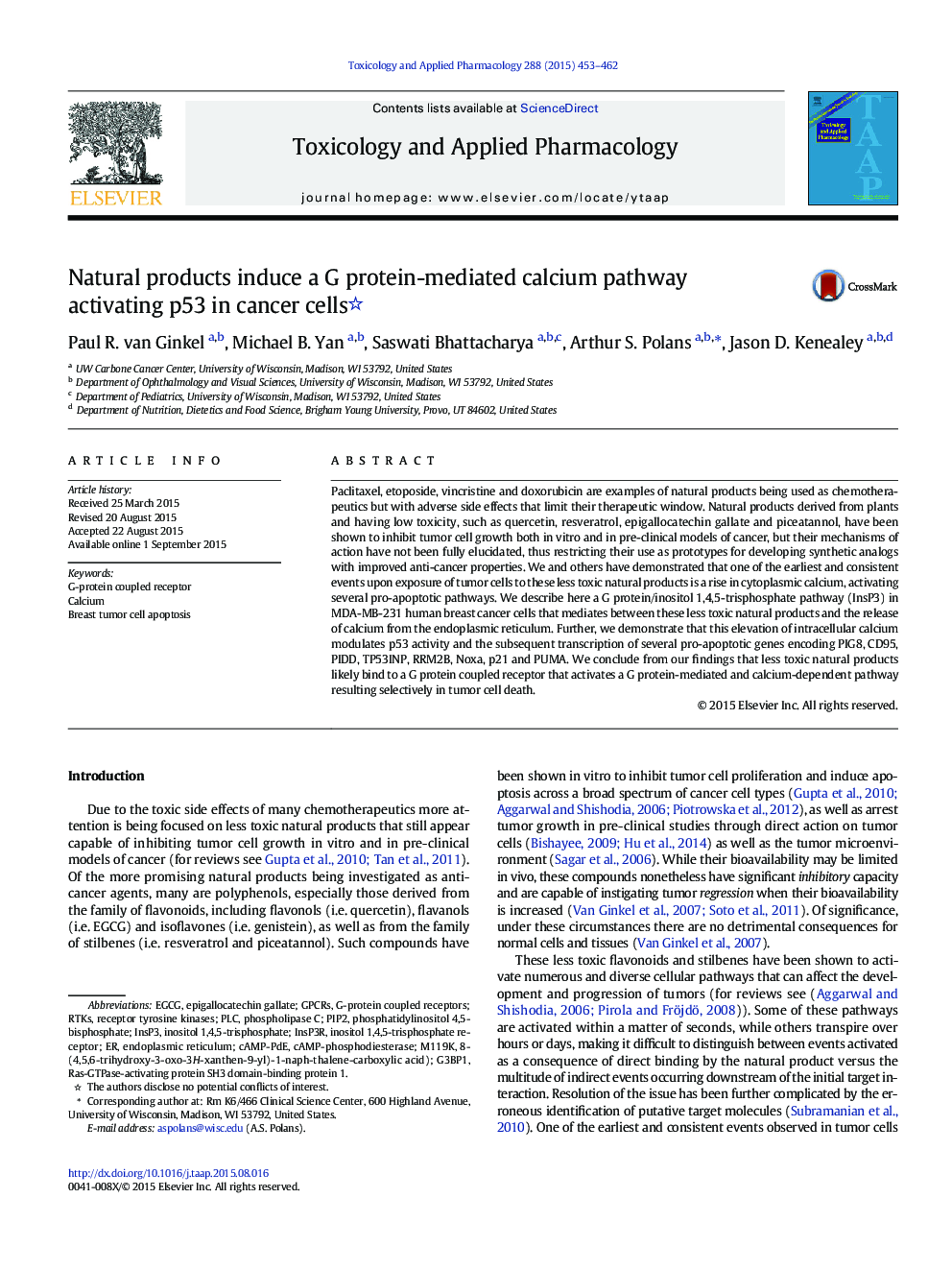| Article ID | Journal | Published Year | Pages | File Type |
|---|---|---|---|---|
| 2568328 | Toxicology and Applied Pharmacology | 2015 | 10 Pages |
•Natural products having low toxicity increase cytoplasmic calcium in cancer cells.•A G-protein/IP3 pathway mediates the release of calcium from the ER.•The elevation of intracellular calcium modulates p53 activity.•p53 and other Ca2 +-dependent pro-apoptotic pathways inhibit cancer cell growth.
Paclitaxel, etoposide, vincristine and doxorubicin are examples of natural products being used as chemotherapeutics but with adverse side effects that limit their therapeutic window. Natural products derived from plants and having low toxicity, such as quercetin, resveratrol, epigallocatechin gallate and piceatannol, have been shown to inhibit tumor cell growth both in vitro and in pre-clinical models of cancer, but their mechanisms of action have not been fully elucidated, thus restricting their use as prototypes for developing synthetic analogs with improved anti-cancer properties. We and others have demonstrated that one of the earliest and consistent events upon exposure of tumor cells to these less toxic natural products is a rise in cytoplasmic calcium, activating several pro-apoptotic pathways. We describe here a G protein/inositol 1,4,5-trisphosphate pathway (InsP3) in MDA-MB-231 human breast cancer cells that mediates between these less toxic natural products and the release of calcium from the endoplasmic reticulum. Further, we demonstrate that this elevation of intracellular calcium modulates p53 activity and the subsequent transcription of several pro-apoptotic genes encoding PIG8, CD95, PIDD, TP53INP, RRM2B, Noxa, p21 and PUMA. We conclude from our findings that less toxic natural products likely bind to a G protein coupled receptor that activates a G protein-mediated and calcium-dependent pathway resulting selectively in tumor cell death.
